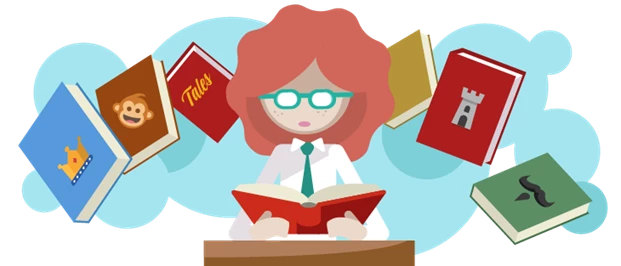“Good skill on your test everyone” the teacher said as students began their maths exam. In my previous teaching position, I shared a room with a maths teacher who would say this at the beginning of every unit assessment. By the end of a unit, that’s what all teachers are hoping for: not good luck, but good skill.
As exams loom, the stakes are even higher. Teachers, students and parents are all hoping that students remember everything necessary to get the desired test results.
These kind of stakes can lead to an array of bad study habits. All day (or night) study sessions. Reading and rereading lesson notes. Scanning highlighted and underlined readings. Watching video after video on Youtube that claims to offer “everything you need to know to pass …”.
We’ve all been there as students. As educators, we try to promote effective student habits. We can easily default to our own bad habits though, cave to the time pressures or the ease of just printing off an online study guide.
Here are three, evidenced-based study strategies for you to pass on to your students. I promise they aren’t too time intensive either! A few months ago, I stumbled on the Learning Scientists podcast. Each month, the hosts promote a single evidence-based learning strategy with some examples as well as the research findings behind it. They also have an accompanying blog. When you have a moment, I highly recommend giving their work a listen or read.
Below are borrowed insights from the podcast paired with some class activity ideas and additional tips for schools using Firefly.
Start from Scratch
Students shouldn’t start studying with notes or powerpoint slides. They shouldn’t start with a study guide. Their revision should begin with as little information as possible.
Retrieval practice has been making its rounds again through education circles in the past few years. Books like “Make It Stick” have championed retrieval practice as one of the most effective learning strategies to be tested. There is a myriad of psychological research suggesting the effectiveness of retrieval practice. On a neurological level, retrieving prior learning strengthens the pathways for recalling that learning in the future. Indirectly, it also benefits students by helping students identify what they do and don’t know.
While a lot can (and should) be done to integrate retrieval practice throughout the entire school year, your students are approaching exams and should have a year’s learning behind them. Here is one simple activity you can pass on to your students.
Blank Page Brain Dump
Students start with a blank page and begin to write or draw everything they know. This could take the form of a free write or concept map, but it should be open-ended. The goal is that students generate as much knowledge as they can retrieve from memory.
A few notes of guidance:
- Students should place a timer on this process. The time allowed should match the complexity of the topic. For instance, I wouldn’t ask my former year 11 literature students to spend more than a few minutes on a literary device like tone. I would recommend they take more time to retrieve their understanding of Romanticism in literature.
- You will likely want to provide an open-ended prompts. Otherwise, students may struggle with where to start. It could even be a single word or phrase (e.g. “Romanticism”). A simple way to provide these prompts is a retrieval practice challenge grid. These prompts could even be generated as by students through a class activity.
- Consider how you could use class time to provide feedback on these retrievals. Could you provide a checklist for them to assess the quality of their retrieval? Could students pair share their responses for comparison?
For Firefly schools, teachers could create a kind of challenge grid using the progress check page template. It is an effective way to guide independent study and monitor student progress.
This strategy can feel uncomfortable for students initially because it can emphasise what they don’t know. However, a bit of feedback and the use of the next strategy should help alleviate that feeling.
Continue with Questions
In edu-speak, this strategy is referred to as “elaborative interrogation”. In short, students generate how and why questions. Then, they answer the question. If they cannot answer it straight away (retrieval practice), then they must find the answer. Finally, students ask a question about the response they have provided.
Students may start with pretty simple questions, but the process should lead towards increasingly more complex questions. You may want to model this process or provide some question stems. Additionally, this can be a great pair or small group activity in class with the necessary structure. Here is a simple extension to the previous activity:
Sticky Note Sequence
Once students have written or drawn the extent of their knowledge in the “Blank Page Brain Dump” activity, they begin to annotate their response with sticky notes. Each sticky note contains one question. You decide if you want them to generate one or more questions to the previous response. Then, they answer that question on a new page. Finally, they should check that their answer is correct and note the source.
A few notes of guidance:
- Be sure to provide a few quality resources for students to use when checking their answers. One wrong answer early in the process can lead students to greater confusion. Further, your student may be led astray by incorrect answers on the internet. To make the most of the strategy, I require students to verify their answers with provided resources.
- I wouldn’t recommend this strategy for students who have significant gaps in their subject knowledge. It assumes that students have a fairly complete understanding of the topics. Elaborative questioning allows students to draw out greater levels of detail in their understanding. Providing instruction would be more useful to a student’s learning process in this case.
If you use Firefly, try using forums or the blog commenting feature to facilitate this activity with students.
Elaborative interrogation ties in seamlessly with retrieval practice. There are also numerous ways to practice it throughout the school year. If students can use these two strategies effectively, they can use it in their own independent studying with minimal teacher guidance.
Study Little, Study Often
This last strategy for your students is not really an activity so much as a comment on activity. As exams loom, the tendency can be to cram or to pull long study sessions. Research doesn’t support these approaches. While cramming may provide some benefit, it isn’t the best use of your students’ time. Short, focused sessions are much more useful. This is referred to as “spaced practice”.
When implementing retrieval practice and elaborative interrogation, encourage your students to space out their exam preparation over multiple days. In other words, students shouldn’t just make Tuesday night all about maths review. They should study for each exam a little bit. Two hours studying one subject isn’t as effective as using the same two hours to study four or five subjects.
There are multiple advantages to spaced practice. Like retrieval practice, it strengthens the brain’s ability to recall specific information. Students can also break down studying into manageable chunks. One study session for biology might just focus on cell structure; the following day’s study session can focus on DNA replication. There’s no need (and only marginal benefit) to reviewing everything in a single super session.
To encourage spaced practice, consider setting multiple short study tasks for homework in the days and weeks leading up to the exam. Stress the importance of short study sessions. If not using the previous two strategies with students, try spacing out the completion of a worksheet or study guide. You can do this in Firefly using the Class Test page template because it allows teachers to set a test timer.
Final Thoughts…
With so many exams coming up, time is an invaluable resource. These approaches allow students to make most of the days remaining. For Firefly schools, there are a lot of tools at students’ and teachers’ fingertips to maximise effective study time.
Interested in more evidence-based teaching strategies and the research that supports it? Check out The Learning Scientists podcast and blog.
Need a little guidance on using Firefly to make the most of you and your students remaining days until exams? Start with our Help Centre to find the tutorials you need. If you are new to Firefly, try booking a demo and see how Firefly can help your school.
Good skill to you and your students in the weeks ahead!

